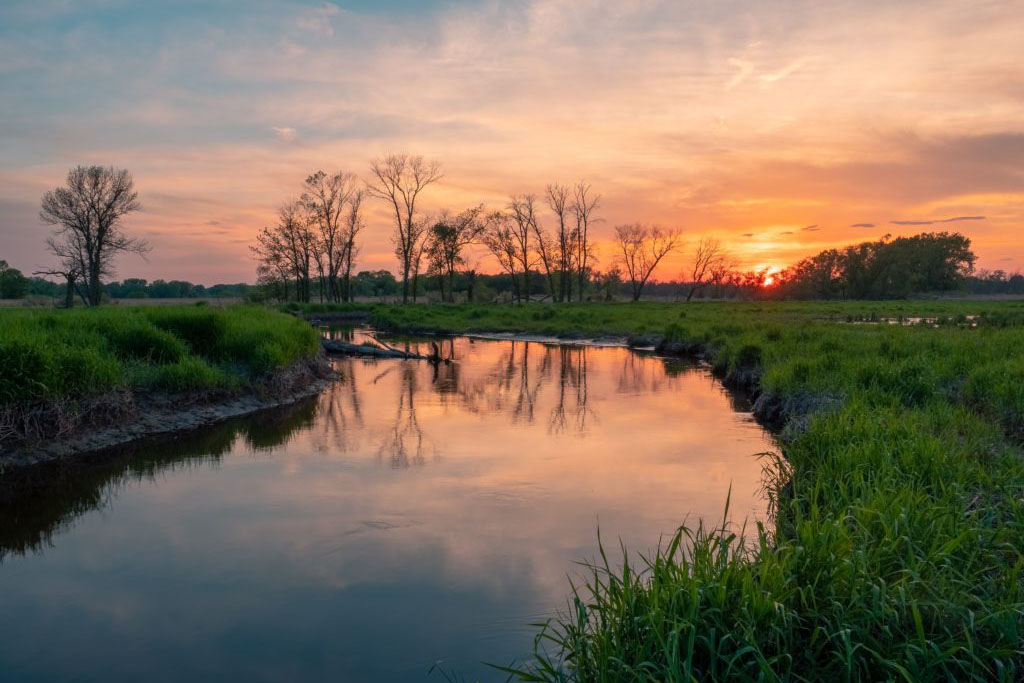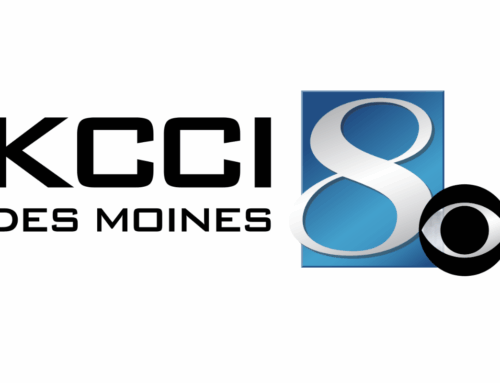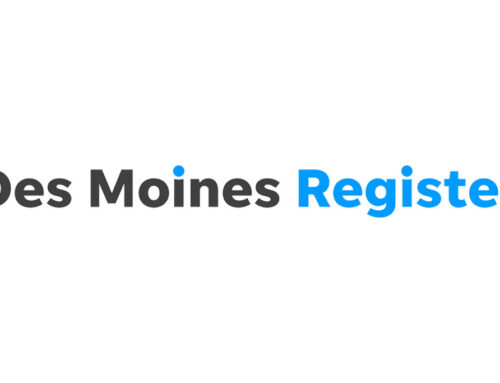Bridging Upstream and Downstream Water Quality Work

In an internal audit of organizations, initiatives, and programs directly tied to supporting Iowa water quality, the number reaches well above 80. A number worth celebrating, yes. Especially considering many of these provide funding, resources, and outreach to elevate Iowa’s efforts towards water quality goals.
While this has meant reaching new heights in impact, it begs the question of what would best serve the next decade of water quality, and how can this collectively be pursued? Most specifically for all Iowans- both urban and rural.
These are some of the questions Great Outdoors Foundation has sought to answer, and alongside our team at CornerPost, we’ve focused on taking a new approach to charting towards insight from both upstream and downstream stakeholders. All to identify priority strategies that will drive the largest impact on water quality in our great state and align the necessary resources to achieve them.
Not as oppositional as some have come to expect.
It can be very easy to assume all views, opinions, and importance of water quality vary greatly based on location within our state of Iowa. While the everyday use or understanding of water may see variations, the views on the significance of water quality and the need for continued resources and outreach trends similarly for all.
This was made evident in the conversations and discovery we chartered among various stakeholders upstream and downstream within the Racoon River and Des Moines River Watersheds.
Those stakeholders? They included ag retail to rural development, to ag financing to farm management, to landowners and farmers to those working on land implementation projects. The idea was to ensure we gained honest perspectives from those that may not always be at the forefront of water quality directive discussions to genuinely tap into what priorities and resources are needed next.
We asked questions such as, “What are the largest barriers your growers have to adopting conservation practices?” Or “What conservation or water quality programs do you see not implemented and why?”
The idea? Get to the heart of where the challenges and opportunities lie with completely open minds.
In summarizing responses, it was apparent that common challenges and opportunities rose to the surface regarding what hinders or what would help encourage increased implementation of water quality and conservation efforts on Iowa land. In fact, there were similar responses regardless of upstream or downstream location or daily role.
Here are a few of those noteworthy takeaways the upstream & downstream stakeholder research emphasized for us.
- Increased education and outreach are still needed both downstream and upstream.
- Economics of farming drive farmer implementation of water quality and conservation decisions, including land ownership.
- Considerable red tape or lack of understanding about where to go for information and funding or how to implement specific practices hinders action.
- Recognized lack of centralized and consistent data and reporting of practices can impact views and opinions.
- Shared positivity toward desiring to improve or sustain water quality efforts was evident; however, no one is satisfied.
- Openness to replicating what has worked in other areas and accelerating that elsewhere is wanted- but requires direction to do so.
Among these commonly shared challenges and opportunities, Great Outdoors Foundation has proceeded to seek out initiatives and programs that are already meeting these needs and accelerate them further. This has also meant problem-solving avenues not yet utilized that would drive impact and aligning with the correct partners to achieve them.
Why is this different?
What Great Outdoors Foundation has set out to do with this information, the reason behind it, and the meaningful approach, is to ensure continued efforts towards water quality and land stewardship, are met with solutions that make the greatest impact.
Throughout this discovery, it was important that shared and stated visions and outcomes for future water quality solutions that support Iowa were kept at the forefront. Visions and outcomes such as,
- allows for bottom-line profitability,
- is scalable and actionable,
- nurtures economic development,
- activates existing networks,
- connects corporate and rural entities,
- and enhances quality of life.
It was recognized earlier on that this path to identifying priority strategies that supporting those shared visions would require gaining input from stakeholders that may not commonly be gathered and putting away any preconceived assumptions.
With the increasing recognition of the role water quality plays in Iowa’s quality of life and economic development, combined with both private and public support and outside-the-box thinking, we are confident in a momentous next level for water quality.
We are thankful to be a part of the role the Great Outdoors Foundation plays in bringing those synergies and partners together.
About the Author: Afton Holt is the founder and President of CornerPost Marketing, an agriculture-focused marketing and PR agency, based in Iowa. She inspires the growth of her team to deliver exceptional creative problem-solving for the industry’s leading clients and initiatives through her career experience in ag retail, farming background and get-it-done grit.

